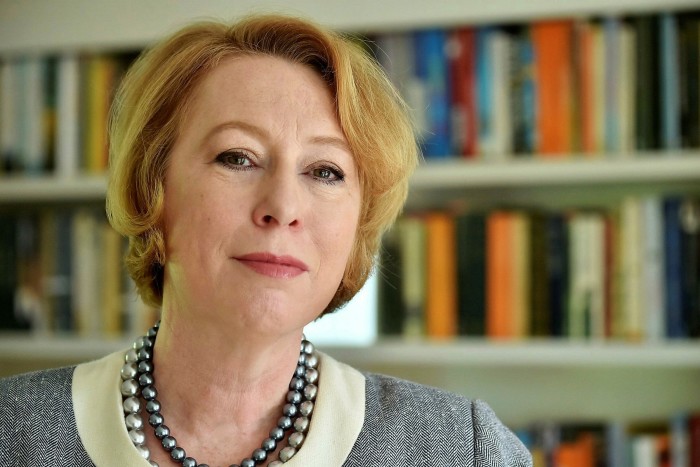How to ace working as an ‘outsider’ at a partnership

Simply sign up to the Professional services myFT Digest -- delivered directly to your inbox.
Knowing that all your shareholders are on site, while having the founder and their family “sitting beside you in the office all day long” — that sums up the typical experience of a chief financial officer employed by a partnership, as characterised by one such CFO.
Simon Russell, chief financial officer at law firm Moore Barlow, is not alone in reaching for such descriptions to explain the status of those charged with bringing financial discipline to bear on partnerships such as law firms and consultancies.
Laura Empson, a management professor at Cass Business School, shone a light on this in her 2017 book, Leading Professionals. She wrote of the insider-outsider dynamic between the fee-earners who become partners, and the cast of professional managers such as finance chiefs — who occupy a position somewhat akin to “a highly paid butler” — who historically do not.
So what is the appeal for a CFO in working for a partnership?
If you crave the limelight and lack the patience to build relationships, working for a partnership is not for you, says Mark Freebairn, a CFO headhunter and partner at Odgers Berndtson.
In the corporate world the finance chief is second only to the chief executive. “Everyone else ultimately needs you, and because they need you, you have power.”
In a partnership structure, the partners pay the wage bill and “they will not take well to being told what to do by someone who isn’t an owner”, says Professor Empson.
Yet there are ways to compensate for this seemingly lower status.
Find an ally
To bolster their authority, the CFO can stay close to the partner to whom others look for leadership, typically the managing partner.
This is especially helpful when trying to get higher-ups to do things, such as learning a new technology or complying with newly automated procedures, Professor Empson says. “Having the managing partner explain why something is important and necessary can make a difference,” she adds.

But while the senior partner can lend power to a chief financial officer, to lead in their own right a CFO needs to earn people’s respect. To avoid being labelled the “managing partner’s attack dog”, Mr Russell uses financial analytics to help partners in underperforming practice areas to devise strategies to restore their waning margins.
This is more powerful, he says, than merely saying “your performance isn’t good enough”. If you can convince a partner that “the end result will be that their profit share is maintained, they will buy in to it”.
Professor Empson’s research suggests that many finance chiefs can become, if not full members of the firm’s inner circle, then at the very least someone who the partners trust to take care of their interests.
Mostly, partners “don’t really care about finance as long as their tax is sorted out”, says Mr Russell. What they do care about, however, is anything that affects their clients.
To avoid friction, he recommends testing new technologies with small pilots and consulting meticulously — which is how he won round the partners at one former employer to a new credit control system administered by the accounts team.
“We spent a lot of time just getting the partners comfortable with the wording of the credit control letters [to clients].”
Professor Empson sees the power plays between partners and salarymen as “part of a process of growth” through which the partners delegate authority.
“Some CFOs will see it as an interesting challenge not just to do the job but to persuade people to let them do it. Others will think this is ridiculous, I just want to get on with managing the money.”
She adds: “Sometimes a partnership needs to chew up its first CFO and then do better the second time.”
Partners gradually cotton on to the commercial advantages of having a senior person who is “not in the trenches” look strategically at what is best for the business, says Philippa Sturt, managing partner at Joelson, a London-based law firm.
Skin in the game
Caroline Matthews, co-founder of Koto, a London-based brand consultancy, has taken a different approach. In 2019, she looked for an up-and-coming candidate to appoint as a finance director. She found her — and if all goes well she plans to make her Koto’s first CFO and with the status of partner.
“I wanted someone who’d be curious about what we do, not an extremely senior person who might limit us by laying down guardrails and hard rules,” she explains.
As partnerships weigh up the pros and cons of making big-ticket technology investments, Mr Freebairn notes that giving the CFO equity, rather than ever-higher pay, is becoming more common and is a good thing.
“If you’re serious about the role, then the CFO needs to be on an equal footing with the partners and have a comparable voice,” he says.
In the future, rather than splashing their cash, forward-looking partnerships might choose instead to make the finance chief one of the family.

Comments